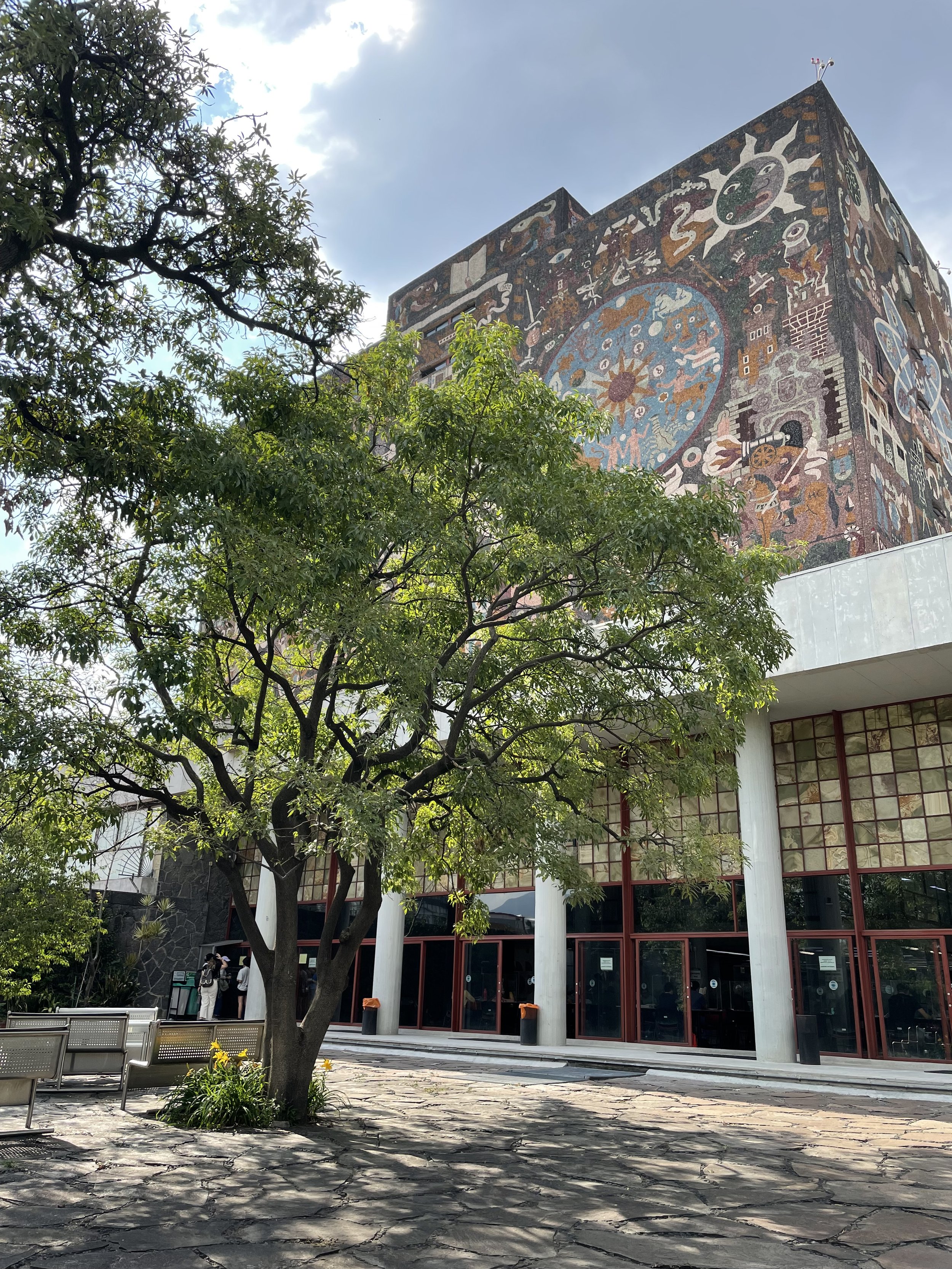Arthur reflects on three months in Mexico City
Arthur and friends visting the Teotihuacan pyramids
Travelling to Mexico City to study might initially seem like a ‘gap yarr’ paradise. Plenty of Polaroid-able tableaux, beach resorts and American-imported familiarities make up for a lack of language ease - you’re far off enough from home: You could return with any number of apparently profound new perspectives on life. For example, there are in fact different ways to go about one’s day-to-day routine - one day someone may consider it odd to put used toilet paper in the bin beside the bowl and then the next day they’re saving the sewers like it’s nobody’s business... perhaps one’s gut is naturally the first organ to respond to different life in a different city. I kept mine carefully protected, choosing to avoid street food and remain diligently vegan. Instead, I relied on the supermarket and cooked flour or corn tortillas at home. Gut happy and healthy, I got on with student life. Here’s what I noticed in the three months I’ve spent in the city so far.
As a Liberal Arts student studying a medley of apparently unrelated units, feeling muddled is a usual state of being. Habituation to muddlement helps navigate unfamiliar routines of Mexican student life. For instance, there was a complete absence of online resources, and a marked emphasis on attendance as part of overall grades. Confusingly at the same time, numerous days of resistance orchestrated by both staff and alumni across la UNAM (Universidad Nacional Autónoma de México) meant whole weeks would pass with classes boycotted and unrecorded. No-one explained these often contradictory idiosyncrasies to us year-abroaders, or revealed the reasons for days of ‘resistance’; we had to glean them ourselves. We found out for ourselves that these days were often anniversaries of tragedies, of the Iguala mass kidnapping of 2014 for example, and used our unexpected days off from university to explore: one day for example, visiting the site of the Tlatelolco massacres exactly 55 years after the event.
Arthur’s photograph Universidad Nacional Autónoma de México library
I’d come home after a day of uni or adventuring to a home shared with a complex mix of CDMX (Ciudad de México) residents: other year-abroaders as well as with locals, who were born within ‘the walls of the city’ or ‘en las murallas de la ciudad’, as they’d say. Where those walls of CDMX lie is debateable. Even as a Londoner, accustomed after 20 years to a huge and busy city, Mexico’s capital feels unmanageable. No-one could be expected to know every corner of the city, to feel comfortable everywhere.
In London I play tourist when I return from a normal university term in Bristol, so I’m used to occupying an unusually transient status in a city. In CDMX my status is more transient than ever; I have to work out what I'd like to make of my short time here, and how I’d like to navigate my status as ‘outsider’. Am I aspiring to impress, speaking Spanish clearly as a foreigner with a good degree of cultural capital, or am I aiming to experience assimilation and live in the city with no ‘extraordinary’ treatment at all? While I wrestle with my identity in Mexico City – as an undergraduate, resident, holiday-maker, as none or all of the above - I appreciate the rich immediacy of cultural exchange for what it is: complex, exciting, something to be grabbed with both hands and celebrated.




